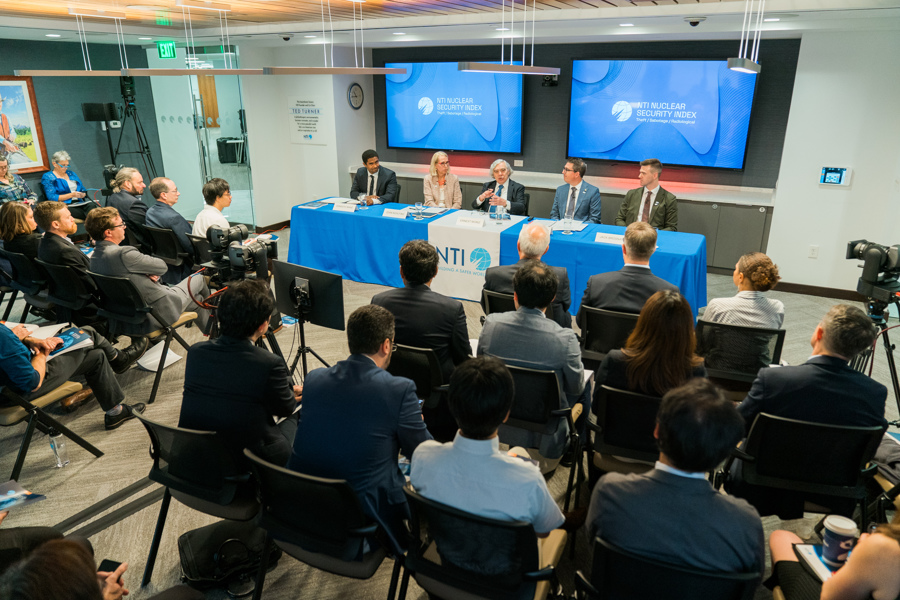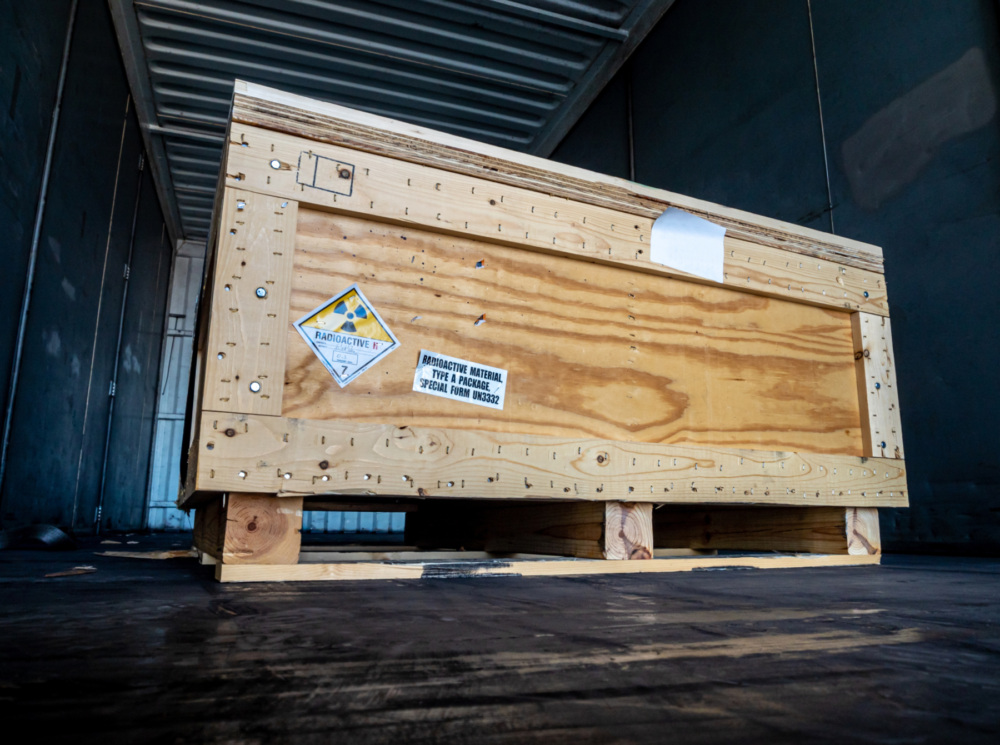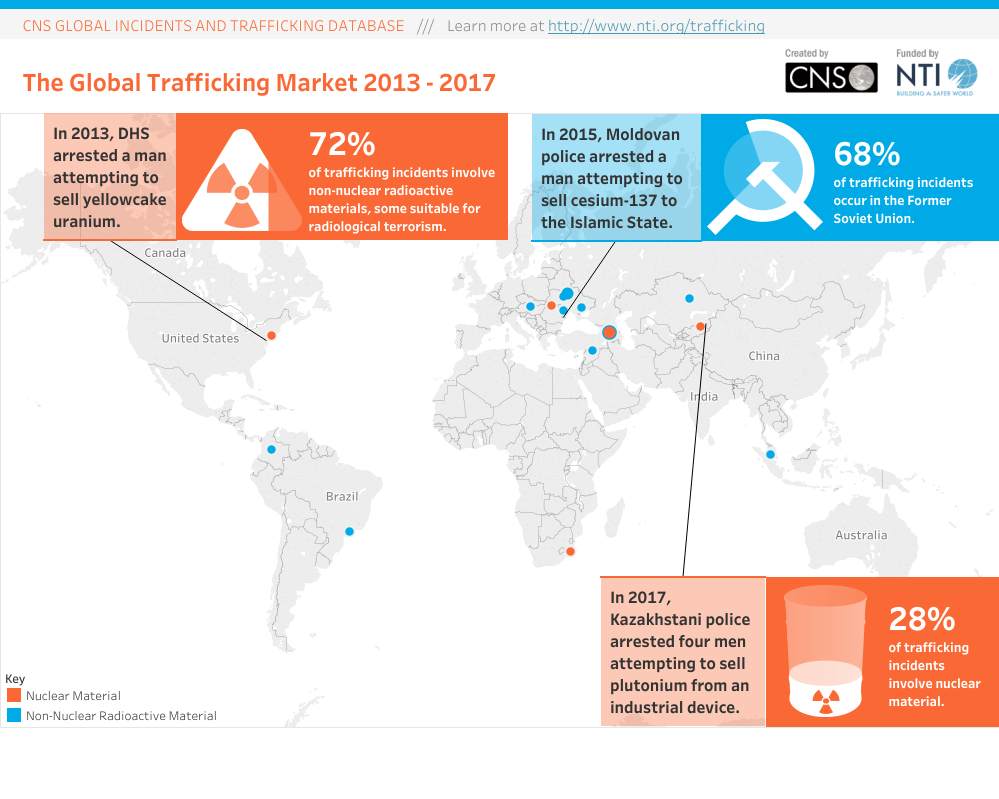Nunn: “Are We Doing All We Can to Prevent a Nuclear Attack? The Simple Answer is No, We Are Not”
Former Senator Sam Nunn, co-chairman of the Nuclear Threat Initiative (NTI), said today that “nothing is more urgent” than a global effort to reduce the nuclear threat, and that “we are in a race between cooperation and catastrophe, and the threat is outrunning our response.” Nunn made the comments in a speech to the National Press Club in Washington, D.C.
Nunn praised the important progress that has been made, including the recent summit between Presidents Bush and Putin, but said we are still not doing enough to prevent a nuclear catastrophe. Nunn said, “Let me offer my own – admittedly highly subjective – evaluation of our progress. By ‘our,’ I mean the United States and Russia. In measuring the adequacy of our response to today’s nuclear threats, on a scale from one to ten, I would give us about a three, with the recent summit between Presidents Bush and Putin moving us closer to a four.”
In the speech, Nunn said, “American citizens have every reason to ask, ‘Are we doing all we can to prevent a nuclear attack?’ The simple answer is, ‘no, we are not.’… Increasingly, we are being warned that an act of nuclear terrorism is inevitable. I am not willing to concede that point. But I do believe that unless we greatly elevate our effort and the speed of our response, we could face disaster…I am not sure we fully grasp the devastating, worldchanging impact of a nuclear attack. Ten kilotons, a plausible yield for a crude terrorist bomb, has the power of 10,000 tons of TNT. To haul that volume of explosives, you would need a cargo train one hundred cars long. But if it were a nuclear bomb, it could fit into the back of a truck.”
Nunn described four nuclear-related threats we face today: 1) a terrorist attack with a nuclear weapon; 2) a terrorist attack with a radiological weapon or “dirty bomb”; 3) an accidental or unauthorized nuclear missile strike; and 4) a sharp increase in the number of countries with nuclear weapons. Nunn said that in the aftermath of any of these events, we would wish we had done a number of things to prevent this tragedy. Nunn asks, “Why aren’t we doing them now?”
Nunn urged a series of initiatives for addressing each of the four nuclear threats:
-
Make preventing the spread of nuclear, biological and chemical weapons the central organizing principle of our government — which begins with building a real global partnership with other nations.
-
Turn the G8 Global Partnership Against Weapons and Materials of Mass Destruction’s pledges to programs directed at the most urgent dangers.
-
Make the global effort to upgrade the security of all nuclear weapons and weaponsusable materials at their source our top priority.
-
Move faster to implement the Global Threat Reduction Initiative to remove and secure nuclear weapons materials from research facilities around the world.
-
Reach agreement with the Russians on bilateral transparent accountability for tactical nuclear weapons in the U.S. and Russian arsenals.
-
Change the U.S. and Russian Cold War force postures and remove our nuclear weapons from hair trigger alert, which brings unacceptable risks of an accidental, mistaken or unauthorized attack.
-
Develop a time-urgent, coordinated, and direct diplomatic effort with North Korea and Iran to end their nuclear weapons programs, using both carrots and sticks.
-
The nuclear weapons states – especially the U.S. and Russia – should visibly and steadily reduce their reliance on nuclear weapons at a time when we are asking others to renounce nuclear weapons.
-
Develop a global inventory of vulnerable radioactive sources and better prioritize our efforts to secure them.
Nunn also outlined the important progress that has been made to date:
-
The success of the Nunn-Lugar Cooperative Threat Reduction program;
-
The G8’s commitment to match the U.S. in threat reduction funding each year for the next 10 years and the fact that other non-G8 nations have joined this emerging Global Partnership against WMD terrorism;
-
Former Secretary of Energy Abraham and his Russian counterpart Minister Rumyantsev launching a Global Threat Reduction Initiative to remove and secure highly enriched uranium from research reactors around the globe;
-
Libya committing to give up its nuclear weapons program, adhere to the Nuclear Non- Proliferation Treaty and test ban, and sign the additional protocol that would allow the IAEA to do more intrusive monitoring of the country’s nuclear facilities;
-
President Bush and President Putin, at their summit meeting, agreeing to enhance cooperation to secure at-risk weapons and materials.
Nunn said, “I believe that preventing the spread and use of nuclear and other weapons of mass destruction should be the central organizing security principle for the 21st century.” During the Cold War, we saw “ what it looks like when world leaders unite, when they listen to each other, when they cooperate against common threats. It is my hope that we will soon employ this model of international teamwork in responding to the threats from North Korea and Iran, in securing nuclear materials around the globe, and in confronting the danger of catastrophic terrorism anywhere in the world.”
“The United States and its partners must be as focused on fighting the nuclear threat in this century as we were in fighting the communist threat in the last century. Why wait till the day after? Let’s do it now,” he said.




